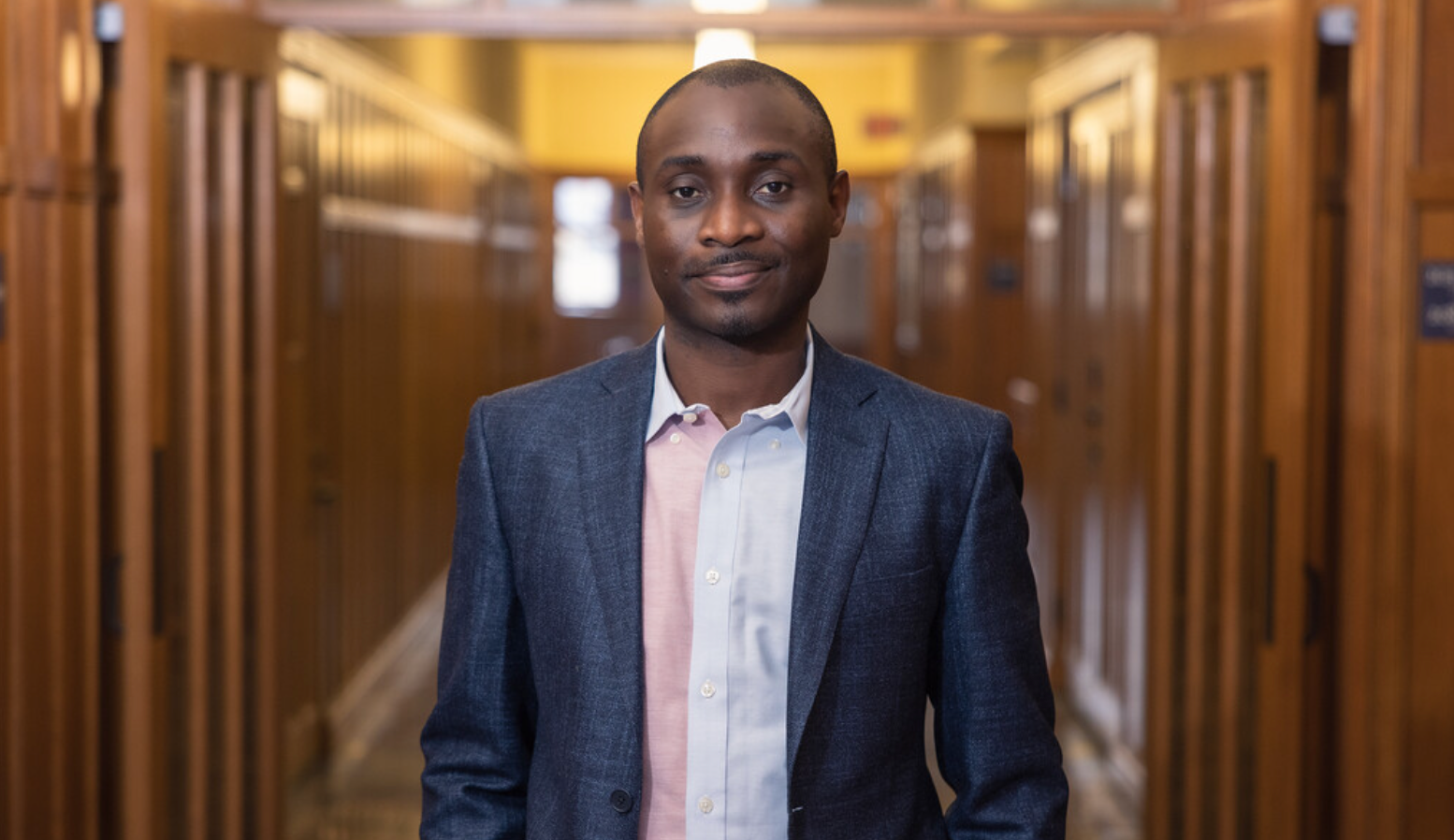Cajetan Iheka named director of Whitney Humanities Center
The English professor will take on the directorship next year alongside two other leading positions at the MacMillan Center.

Yale News
Cajetan Iheka has been triply appointed as director of the Whitney Humanities Center, the first African-born chair of the Council on African Studies and the head of the Yale Africa Initiative.
The latter two positions are through the MacMillan Center for International and Area Studies, a teaching and research center focused primarily on foreign cultures and nations. Iheka will officially step into the roles on July 1.
“I look forward to bringing a more global vision of the humanities to the work of the Whitney through programming and its visitors,” Iheka said.
Iheka had previously been a member of the Council of African Studies, which aims to “seek novel approaches to issues” in the field through joint ventures with a number of Yale organizations, per its website.
The Yale Africa Initiative focuses on promoting African scholarship, discourse and research, as well as strengthening present-day relationships between Yale and African institutions and bringing African scholars to the University. Iheka hopes to be able to build collaborative relationships between these institutions and the Whitney Humanities Center.
Prior to his appointments, Iheka worked as a professor in Yale’s English department, specializing in African literature, ecocriticism and ecomedia and postcolonial literature. He told the News that he would continue teaching and researching, roles he considers “inextricable” from his new position.
“His work is a landmark effort to consider how narrative participates in human beings’ relationship to climate change,” wrote Kathryn Lofton, acting dean of the FAS and dean of Humanities, in a statement on Feb. 13.
At the WHC, Iheka will stand at the helm of a variety of interdisciplinary projects dedicated to the humanities, including lectures, fellowships, conferences and research.
This fall, the WHC will bring in its third cohort of Graduate Fellows in the Environmental Humanities.
“Cajetan’s intellectual reach and enthusiasm for working with scholars from various disciplines and at all stages of their careers will bolster the WHC’s role as a hub for innovative research and interdisciplinary collaboration connecting scholars in the humanities at Yale and beyond,” Whitney Center associate communications officer Megan O’Donnell wrote to the News.
O’Donnell noted specifically that she hoped to see the WHC’s new Environmental Humanities Fellowship grow under Iheka’s care.
Iheka is the editor-in-chief of the African Studies Review and the author of a number of books on postcolonialism and ecopolitics. Most of his work has been interdisciplinary by discipline, a trait Lofton explained she was excited to see him bring to the WHC.
“Colleagues of Professor Iheka, a current Whitney Fellow, are inspired by his sense of the collective good that drives much of his work,” Lofton wrote. “His intellectual reach and enthusiasm for collaboration will build bridges from the Whitney Humanities Center at the Humanities Quadrangle to scholars across the University.”
Steven Wilkinson, chair of the MacMillan Center, expressed similar eagerness regarding Iheka’s boundary-breaking work. Wilkinson cited the Black Environmentalisms Symposium that Iheka co-organized last October and said that he is “excited for the creative vision and intellectual rigor that he brings to these roles.”
Iheka’s term will last three years, as did that of his predecessor Alice Kaplan, Sterling Professor of French and founding director of the Yale Translation Initiative.
The Whitney Humanities Center is located at the Humanities Quadrangle.
Correction 2/27: A previous version misnamed the Graduate Fellowship in the Environmental Humanities.







